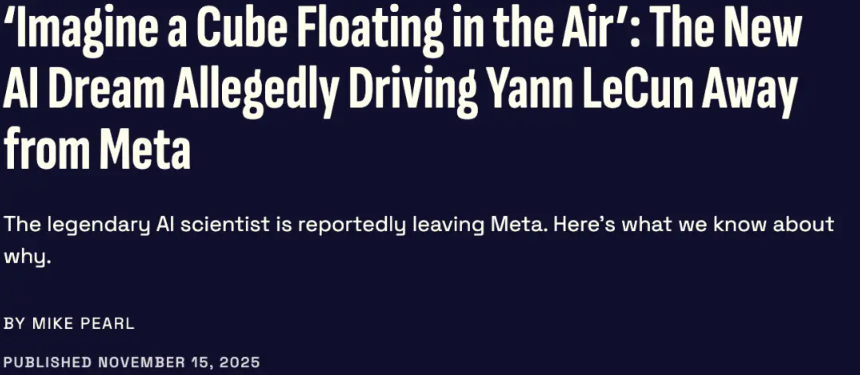In the ever-changing landscape of artificial intelligence, Yann LeCun, a Turing Award winner, and Meta (formerly Facebook) seem to have reached a crossroads. As Meta's chief AI scientist, LeCun has long been pushing for fundamental AI research. However, his recent remarks have surprised many, as he claims that current popular large language models (LLMs) are a "dead end," and the future should focus on "world models."
LeCun's departure has sparked widespread attention. He was once seen as a core advisor at Meta, and the Fundamental AI Research department (FAIR) he led was a symbol of the company's innovation. However, as young AI talents like Alexandr Wang and Zhao Chengjia rose to leadership positions, LeCun felt increasingly marginalized. This summer, Meta continuously restructured its AI team, leading to a significant decline in FAIR's influence. Once highly regarded AI laboratories now face layoffs and budget cuts, which LeCun strongly disagrees with.

In an interview with the media, LeCun openly stated that his doubts about large language models are no longer accepted in Silicon Valley. He believes these models only rely on massive text for predictions and cannot achieve human-level intelligence. The real future lies in "world models"—AI systems that learn through perception and interaction with the environment, similar to how babies learn about the world. LeCun pointed out that the amount of text data required to train current LLMs is almost impossible for humans to read in their normal lives. In contrast, human learning methods are more diverse, and information acquisition far exceeds the limitations of pure text.
LeCun's plans may drive further development in AI. He is considering establishing a new company focused on "world model" research. His goal is to build goal-oriented AI that understands the physical world through sensors and video data, ultimately developing systems that can rival human intelligence.
In the future race of AI, LeCun's voice will undoubtedly continue to spark discussions. His departure is not only a turning point in his personal career but also a signal of Meta's strategic transformation in AI.










